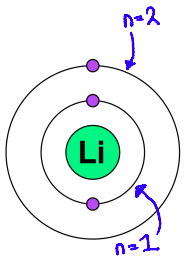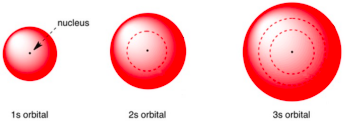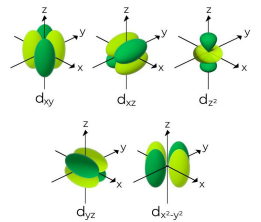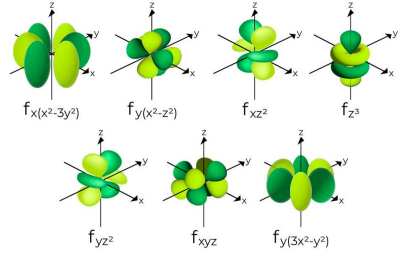1.3B Electron Orbitals
The Principal Energy Level
We are interested in describing the location of an electron
For example, we can state how far an electron is away from the nucleus. The distance is called the energy level of the electron. The energy level is denoted by the letter n.
The lithium atom has two electrons in n = 1 and one electron in n = 2
The maximum number of electrons that can be found in each energy level can be found using 2n²
↳ 1st holds 2 , 2nd holds 8, 3rd holds 18
 Orbitals
Orbitals
We can describe how far from the nucleus an electron is likely to be
We can also describe the shape of the region in which the electron can be found. This region is called a sub-level. Each principal energy level, n, can be divided into one or more sub-levels. Sub-levels contain a fixed number of orbitals, regions of space where there is a high probability of finding an electron
1. The s sub-level
e.g. hydrogen
The hydrogen atom has one electron
The electron can be found in a spherical region close to the nucleus
This region is denoted 1s
e.g. lithium
Lithium has an electron in n = 2
This electron inhabits a region known as 2s
 Nodes
Nodes
A node is a region where there is zero probability of finding an electron

2. The p sub-level
The second energy level, n = 2, can have s and p sub-levels
This sub-level is dumbbell shaped and it can point in different directions
px, py, and pz orbitals
 3. The d sub-level
3. The d sub-level
More energy levels means that the regions for an electron take on more shapes
Energy level n = 3 can have s, p, and d sublevels
 4. The f sub-level
4. The f sub-level
Energy level n = 4 and higher can have s, p , d, and f sub-levels
